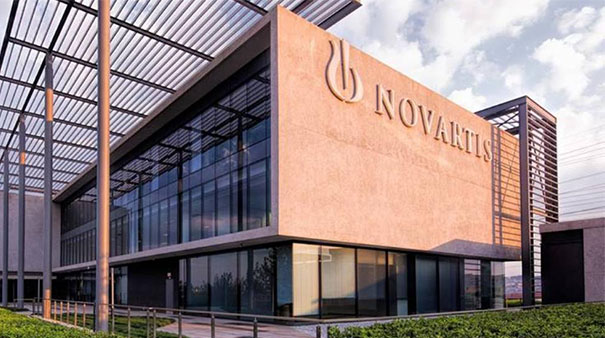Strike two for Novartis' lung cancer antibody canakinumab

Expectations for Novartis' canakinumab as a therapy for cancer have taken another dive, after a second phase 3 trial in non-small cell lung cancer (NSCLC) failed to meet its primary objectives.
Novartis isn't giving up on the programme yet, as it still has other trials of canakinumab in play, but the latest failure makes prospects for the antibody in oncology look increasingly remote.
Canakinumab is an anti-inflammatory drug targeting IL-1 beta that is already approved for diseases such as active systemic juvenile idiopathic arthritis under the brand name Ilaris.
Novartis was prompted to examine its potential in NSCLC on the back of the CANTOS trial reported in 2017, which found that patients treated with canakinumab in atherosclerotic disease appeared to have a reduced risk of lung cancer mortality.
Things started to go awry in March when the first phase 3 trial – CANOPY-2 – did not meet its primary endpoint of increasing overall survival (OS) when canakinumab was used as a second- or third-line therapy for people whose cancer had progressed despite prior chemo or immunotherapy.
Now, companion study CANOPY-1 has followed the same path, with no improvement in OS or progression-free survival (PFS) when canakinumab was added to first-line therapy with Merck & Co's immunotherapy Keytruda (pembrolizumab) and platinum-based chemo.
Nevertheless, Novartis reckons there are signs that canakinumab may still have a role to play in cancer, as there were "potentially clinically meaningful" improvements in both PFS and OS in subgroups of patients, including one with high levels of C-reactive protein (CRP), a marker for inflammation.
The finding suggests that canakinumab may have a role to play in earlier stages of disease, for example when given as an adjuvant (post-surgery) or neoadjuvant (pre-surgery) therapy to NSCLC patients.
"While this trial did not confirm the benefit for all patients we hoped for, we are energised by the overall CANOPY-1 findings as they support our commitment to continue studying canakinumab in lung cancer," said John Tsai, Novartis' chief medical officer.
The CANOPY-1 result wasn't completely out of the blue, as it passed an interim analysis but fell short of the efficacy criteria needed for early stopping.
Analysts at Jefferies have modelled a fairly low probability of approval for canakinumab in NSCLC, but sizeable rewards if it does make it to market of around $2 billion in peak sales.
Attention now turns to two other studies, and particularly the CANOPY-A trial of adjuvant canakinumab in patients that Novartis says, "more closely reflect the earlier CANTOS study population than those in the CANOPY-1 trial."
The antibody is also being tested as a neoadjuvant therapy in the phase 2 CANOPY-N study, although that is not expected to produce data that could be used for a filing.
Regardless of the outcome, the CANOPY programme will generate key data that will allow researchers to explore the role of the so-called pro-tumour inflammation (PTI) pathway in NSCLC, which suggests inflammatory processes drive cancer development and suppress antitumour responses.
Novartis is developing other drugs that targeted the PTI pathway in cancer, including another IL-1 beta-targeting antibody, gevokizumab, which is in phase 1 testing.












